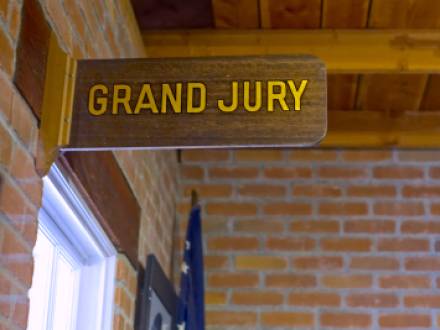What You Need to Know About Illinois Grand Jury Investigations
 Perhaps you have heard rumors that you may be the target of a grand jury investigation. How do you find out whether the rumor is true, and if it is, what should you do? Most people associate federal law enforcement with grand juries, but only two states (Connecticut and Pennsylvania) and Washington, D.C., do not utilize state grand juries. State grand juries are typically reserved for serious criminal cases involving violent crimes, organized crimes, drug offenses, and public corruption.
Perhaps you have heard rumors that you may be the target of a grand jury investigation. How do you find out whether the rumor is true, and if it is, what should you do? Most people associate federal law enforcement with grand juries, but only two states (Connecticut and Pennsylvania) and Washington, D.C., do not utilize state grand juries. State grand juries are typically reserved for serious criminal cases involving violent crimes, organized crimes, drug offenses, and public corruption.
A state grand jury usually hears evidence and then determines if criminal charges should be filed and whether a person should be indicted for a criminal offense. The grand jury is comprised of those from the community. While grand juries can have up to 23 members, in Illinois, they consist of 16 members. At least 12 members must be present before the grand jury can hear evidence. Grand jury investigations are typically considered "secret" proceedings, but in smaller cities, residents are more likely to be aware that a grand jury has been convened, and even the reason for the grand jury.
The grand jury determines whether probable cause exists to justify charging a person with a crime and is similar in nature to a "show cause" hearing, where a judge determines whether there is sufficient evidence to charge a person with a crime. If you know or even suspect that you are the subject of a grand jury investigation, it is extremely important that you speak to an Oakbrook Terrace, IL criminal defense attorney as soon as possible.
Who Is Involved in a Grand Jury Investigation?
The prosecutor in the case – either the State’s Attorney, the Attorney General, or an assistant to either of them – along with witnesses, are usually the only ones involved in the grand jury investigation, other than the grand jury members. The grand jury can request information and documents, question any witness, and examine documents or transcripts related to the case. Grand jury members are usually given a list of witnesses.
If at least eight grand jurors agree, the judge may be asked to hire an investigator. The grand jury, by its very nature, is supposed to be secret. Jurors are cautioned not to discuss what they learn as grand jurors with family, friends, or co-workers. Grand jurors are not supposed to watch, follow, or listen to anything on television, newspapers, radio, or social media that pertains to the case. Any juror who violates the secrecy requirement could be held in contempt of court. Witnesses are allowed to have their own lawyer in the room to advise them of their rights.
Can the Subject of a Grand Jury Investigation Ask to Testify?
The subject of a grand jury investigation can request or demand that they be allowed to tell the grand jury their side of the story. The prosecutor has no legal obligation to permit this testimony. If a subject is allowed to testify, he or she may have a defense lawyer present who will ensure the client’s rights are protected. The defense attorney is allowed to challenge evidence presented by the prosecutor, identify procedural errors, and negotiate plea agreements.
The defense attorney may not object to questions asked by the prosecutor or a juror. The defendant’s attorney can negotiate potential plea agreements, challenge the evidence the prosecutor presents, and identify procedural errors. If a person is indicted by the grand jury, that indictment can be challenged for lack of probable cause; if a judge agrees there was not sufficient evidence heard, the indictment can be dismissed.
Contact a Chicago, IL Criminal Defense Lawyer
If you believe you are the target of a grand jury investigation, the best step you can take is to speak to a Rolling Meadows, IL criminal defense attorney from Hartsfield Law. Attorney Hartsfield’s diverse background includes being an educator for the City Colleges of Chicago and representing indigent defendants for the Will County Public Defender’s Office. He also taught courses to pre-trial detainees at the Cook County Department of Corrections. Call 312-345-1700 to schedule your free consultation.













 312-345-1700
312-345-1700



